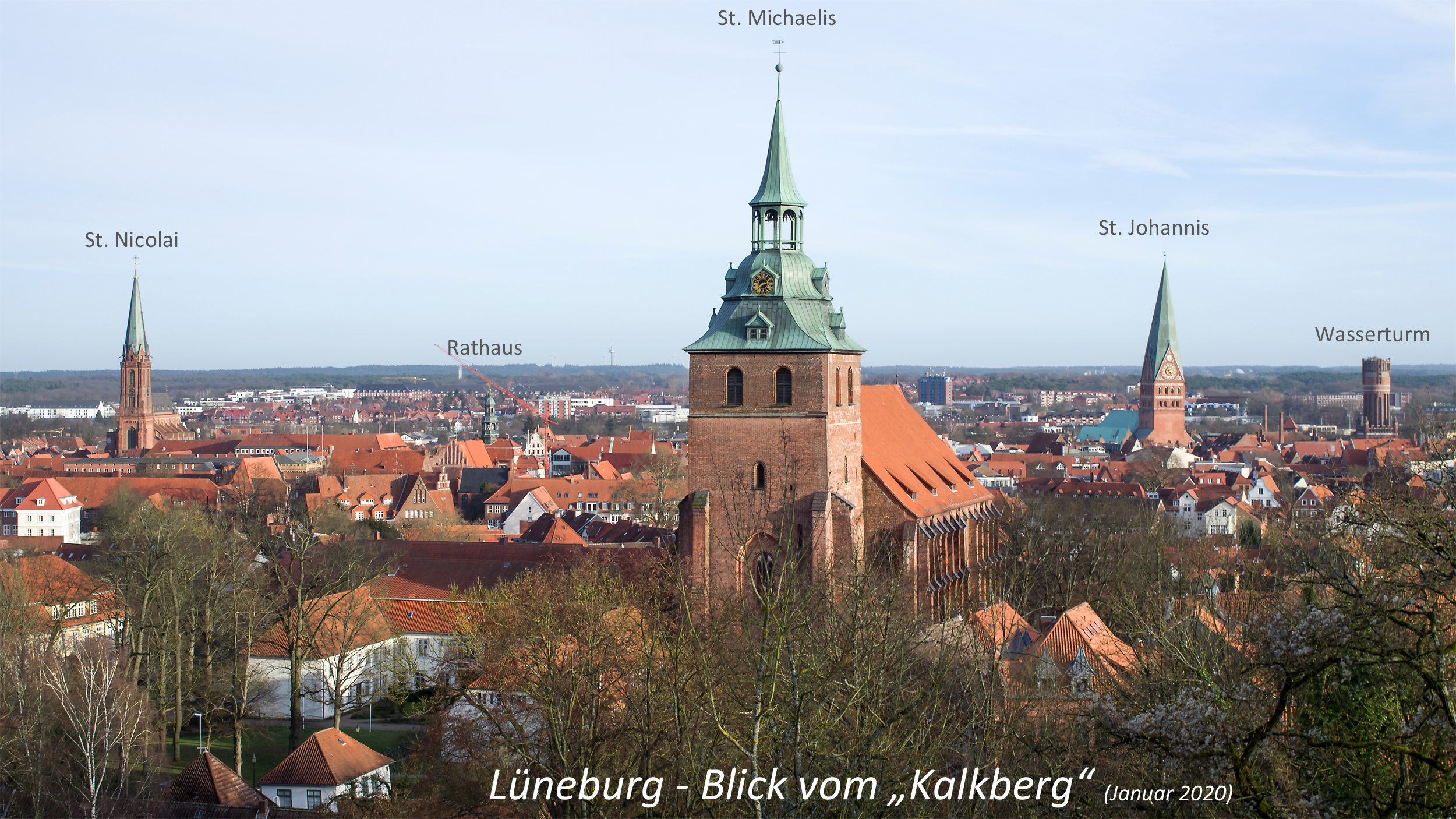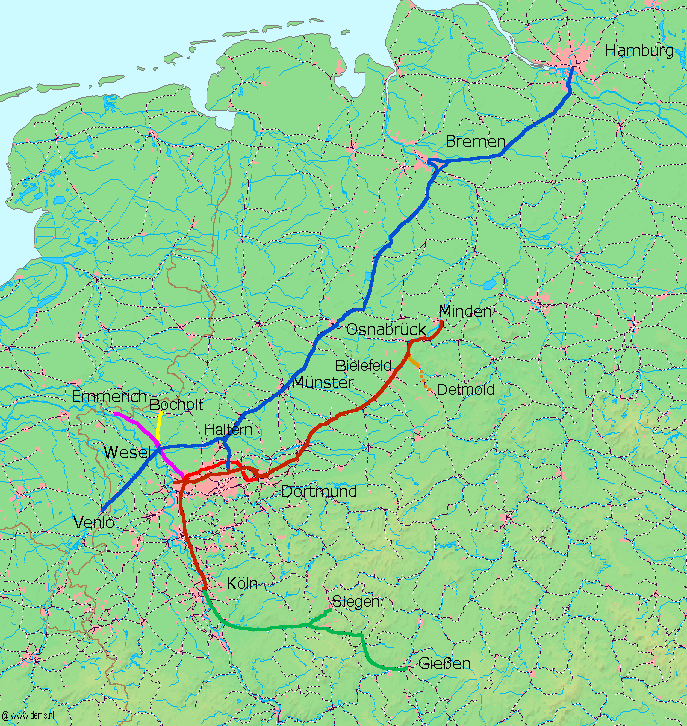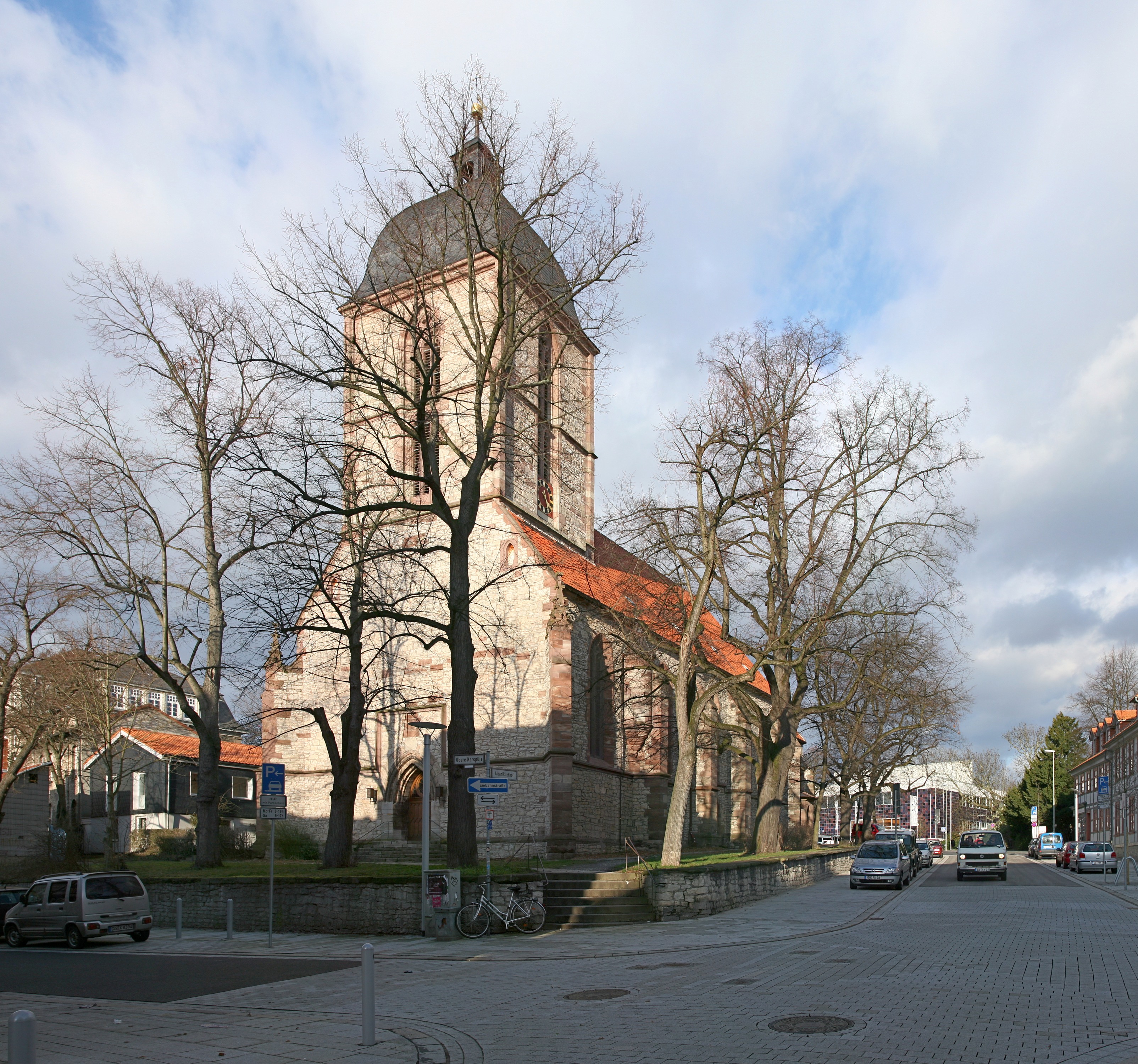|
Königlich Hannöversche Staatseisenbahnen
The Royal Hanoverian State Railways (German: ''Königlich Hannöversche Staatseisenbahnen'') existed from 1843 until the annexation of the Kingdom of Hanover by the Kingdom of Prussia in 1866. At that time its railway network, which comprised 800 kilometres of track, went over to the Prussian state. Construction phases and routes The ''Kreuzbahn'' The concept of the ''Kreuzbahn'' arose from the desire of Ernest Augustus, King of Hanover, to avoid having a central railway station in Hanover. The routes therefore ran into the district of Lehrte in the form of a cross (hence ''Kreuzbahn'' = cross railway) and, as a result, Lehrte developed into an important railway hub. The government of the Kingdom of Hanover had initially taken over the construction of state railways, because no private sponsors could be found for the first railway lines that were planned. These were the routes: * Hanover via Lehrte to Peine on the border with the Duchy of Brunswick * Lehrte to Celle * Leh ... [...More Info...] [...Related Items...] OR: [Wikipedia] [Google] [Baidu] |
German Language
German (, ) is a West Germanic language in the Indo-European language family, mainly spoken in Western Europe, Western and Central Europe. It is the majority and Official language, official (or co-official) language in Germany, Austria, Switzerland, and Liechtenstein. It is also an official language of Luxembourg, German-speaking Community of Belgium, Belgium and the Italian autonomous province of South Tyrol, as well as a recognized national language in Namibia. There are also notable German-speaking communities in other parts of Europe, including: Poland (Upper Silesia), the Czech Republic (North Bohemia), Denmark (South Jutland County, North Schleswig), Slovakia (Krahule), Germans of Romania, Romania, Hungary (Sopron), and France (European Collectivity of Alsace, Alsace). Overseas, sizeable communities of German-speakers are found in the Americas. German is one of the global language system, major languages of the world, with nearly 80 million native speakers and over 130 mi ... [...More Info...] [...Related Items...] OR: [Wikipedia] [Google] [Baidu] |
Lüneburg
Lüneburg, officially the Hanseatic City of Lüneburg and also known in English as Lunenburg, is a town in the German Bundesland (Germany), state of Lower Saxony. It is located about southeast of another Hanseatic League, Hanseatic city, Hamburg, and belongs to that city's wider Hamburg Metropolitan Region, metropolitan region. The capital (political), capital of the Lüneburg (district), district which bears its name, it is home to roughly 77,000 people. Lüneburg's urban area, which includes the surrounding communities of Adendorf, Bardowick, Barendorf and Reppenstedt, has a population of around 103,000. Lüneburg has been allowed to use the title ('Hanseatic Town') in its name since 2007, in recognition of its membership in the former Hanseatic League. Lüneburg is also home to Leuphana University of Lüneburg, Leuphana University. History ImageSize = width:1050 height:100 PlotArea = width:1000 height:50 left:50 bottom:25 DateFormat = yyyy Period = from:950 till:2000 Tim ... [...More Info...] [...Related Items...] OR: [Wikipedia] [Google] [Baidu] |
Cologne-Minden Railway Company
The Cologne-Minden Railway Company (German, old spelling: ''Cöln-Mindener Eisenbahn-Gesellschaft'', ''CME'') was along with the Bergisch-Märkische Railway Company and the Rhenish Railway Company one of the railway companies that in the mid-19th century built the first railways in the Ruhr and large parts of today's North Rhine-Westphalia. Founding The founding of the Cologne-Minden Railway Company in 1843 in Cologne ended a long struggle for a railway line between the Rhineland and the German North Sea ports, as well as the Prussian capital of Berlin. From the 1830s several railway committees in the cities of Düsseldorf, Cologne and Aachen attempted to find a solution with each other and the Prussian government. The focus of all these efforts was to avoid the Dutch duties on trade on the Rhine, which significantly increased the cost of import and export of goods via the Rhine. Some of the Cologne committee members under David Hansemann (1790–1864)—a merchant and banker fro ... [...More Info...] [...Related Items...] OR: [Wikipedia] [Google] [Baidu] |
Löhne
Löhne (; , ) is a town in the district of Herford, in North Rhine-Westphalia, Germany. Geography Löhne is situated on the river Werre, approx. 8 km north of Herford and 20 km south-west of Minden Minden () is a middle-sized town in the very north-east of North Rhine-Westphalia, Germany, the largest town in population between Bielefeld and Hanover. It is the capital of the district () of Minden-Lübbecke, situated in the cultural region .... Neighbouring places * Hüllhorst * Bad Oeynhausen * Vlotho * Herford * Hiddenhausen * Kirchlengern Twin towns – sister cities Löhne is twinned with: * Spittal an der Drau, Austria (1973) * Columbus, United States (1993) * Condega, Nicaragua (1994) * Röbel, Germany (1996) * Mielec, Poland (2002) Notable people * Frederick Louis, Duke of Schleswig-Holstein-Sonderburg-Beck (1653–1728), Prussian field marshal * Philip Louis, Duke of Schleswig-Holstein-Sonderburg-Wiesenburg (1620–1689), founder and first d ... [...More Info...] [...Related Items...] OR: [Wikipedia] [Google] [Baidu] |
Göttingen
Göttingen (, ; ; ) is a college town, university city in Lower Saxony, central Germany, the Capital (political), capital of Göttingen (district), the eponymous district. The River Leine runs through it. According to the 2022 German census, the population of Göttingen was 124,548. Overview The origins of Göttingen lay in a village called ''Gutingi, ''first mentioned in a document in 953 AD. The city was founded northwest of this village, between 1150 and 1200 AD, and adopted its name. In Middle Ages, medieval times the city was a member of the Hanseatic League and hence a wealthy town. Today, Göttingen is famous for its old university (''Georgia Augusta'', or University of Göttingen, "Georg-August-Universität"), which was founded in 1734 (first classes in 1737) and became the most visited university of Europe. In 1837, seven professors protested against the absolute sovereignty of the House of Hanover, kings of Kingdom of Hanover, Hanover; they lost their positions, but ... [...More Info...] [...Related Items...] OR: [Wikipedia] [Google] [Baidu] |
Alfeld (Leine)
Alfeld (Leine) () is a town in the state of Lower Saxony, Germany. Located on the Leine river and situated approximately 20 km southwest of Hildesheim, it is the second biggest city in the district of Hildesheim in southern Lower Saxony and part of the Metropolitan region Hannover-Braunschweig-Göttingen-Wolfsburg. Alfeld is a member of the Leinebergland region and on the German Timber-Frame Road. With the Fagus Factory, Alfeld became a UNESCO World Heritage Site in 2011. History The town was founded before 1214, with the name ''Alvelde'' recorded in 1214, 1221, and 1233. The toponymic element "-feld" means "open area", "an undeveloped, open field", or "an untilled field". "Al-" likely derives from the Indoeuropean root "el-/ol-" meaning "water", "damp", or "flowing". In 1426, Alfeld joined the Saxon League of Towns, thus becoming an indirect member of the Hanseatic League. The town was one of the smallest cities in the Hanseatic League, but had become prosperous in the ... [...More Info...] [...Related Items...] OR: [Wikipedia] [Google] [Baidu] |
Revolutions Of 1848 In The German States
In political science, a revolution (, 'a turn around') is a rapid, fundamental transformation of a society's class, state, ethnic or religious structures. According to sociologist Jack Goldstone, all revolutions contain "a common set of elements at their core: (a) efforts to change the political regime that draw on a competing vision (or visions) of a just order, (b) a notable degree of informal or formal mass mobilization, and (c) efforts to force change through noninstitutionalized actions such as mass demonstrations, protests, strikes, or violence." Revolutions have occurred throughout human history and varied in their methods, durations and outcomes. Some revolutions started with peasant uprisings or guerrilla warfare on the periphery of a country; others started with urban insurrection aimed at seizing the country's capital city. Revolutions can be inspired by the rising popularity of certain political ideologies, moral principles, or models of governance such as na ... [...More Info...] [...Related Items...] OR: [Wikipedia] [Google] [Baidu] |
Wunstorf
Wunstorf () is a town in the district of Hanover, in Lower Saxony, Germany. It is situated approximately west of Hanover. The following localities belong to the town of Wunstorf: Blumenau (with Liethe), Bokeloh, Großenheidorn, Idensen (with Idensermoor and Niengraben), Klein Heidorn, Kolenfeld, Luthe, Mesmerode, Steinhude, and Wunstorf. Nearby Wunstorf Air Base of the German Air Force, which participated in the Berlin Airlift and is home to Air Transport Wing 62 since 1978 that operates all German A400Ms, is named after Wunstorf. To the west of the city, and are located on the shores of Lake Steinhude. Early history The name ''Wunstorf'' derives from the early settlement of dating to around . In 1181, Wunstorf was mentioned as a , literally 'citizenry' in Latin and '' in German. Population * 1830 – * 1840 – * 1871 – 2,455 * 1885 – 2,963 * 1905 – 4,523 * 1949 – 11,610 (of this, 3,490 were refugees and displaced persons) * 1998 – 40,848 * 2000 – 41,474 ... [...More Info...] [...Related Items...] OR: [Wikipedia] [Google] [Baidu] |
Minden
Minden () is a middle-sized town in the very north-east of North Rhine-Westphalia, Germany, the largest town in population between Bielefeld and Hanover. It is the capital of the district () of Minden-Lübbecke, situated in the cultural region of Ostwestfalen-Lippe (OWL) and the administrative Detmold (region), region of Detmold. The town extends along both sides of the River Weser, and is crossed by the Mittelland Canal, which is led over the river on the Minden Aqueduct. In its 1,200-year written history, Minden had functions as diocesan town from to the Peace of Westphalia in , as capital of the Prince-Bishopric of Minden as imperial territory since the 12th century, afterwards as capital of Prussia's Minden-Ravensberg until the end of the Holy Roman Empire in 1806, and as capital of the East-Westphalian region from the Congress of Vienna until 1947. Furthermore, Minden has been of great military importance with fortifications from the 15th to the late 19th century, and is s ... [...More Info...] [...Related Items...] OR: [Wikipedia] [Google] [Baidu] |
Bremen
Bremen (Low German also: ''Breem'' or ''Bräm''), officially the City Municipality of Bremen (, ), is the capital of the States of Germany, German state of the Bremen (state), Free Hanseatic City of Bremen (), a two-city-state consisting of the cities of Bremen and Bremerhaven. With about 577,000 inhabitants, the Hanseatic League, Hanseatic city is the List of cities in Germany by population, 11th-largest city of Germany and the second-largest city in Northern Germany after Hamburg. Bremen is the largest city on the River Weser, the longest river flowing entirely in Germany, lying some upstream from its River mouth, mouth into the North Sea at Bremerhaven, and is completely surrounded by the state of Lower Saxony. Bremen is the centre of the Northwest Metropolitan Region, which also includes the cities of Oldenburg (city), Oldenburg and Bremerhaven, and has a population of around 2.8 million people. Bremen is contiguous with the Lower Saxon towns of Delmenhorst, Stuhr, Achim, Wey ... [...More Info...] [...Related Items...] OR: [Wikipedia] [Google] [Baidu] |







